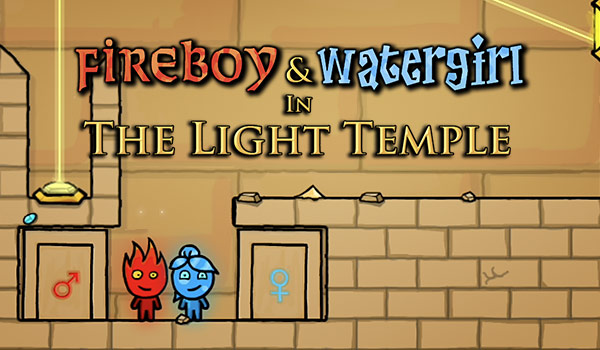Call of Duty (CoD) is not just a video game series—it is a global phenomenon that has defined the first-person shooter (FPS) genre for over two decades. Developed by Infinity Ward, Treyarch, and Sledgehammer Games under the Activision banner, the series has evolved dramatically since its debut in 2003. From its gritty World War II origins to futuristic warfare and the rise of battle royale in Warzone, Call of Duty has continually reshaped expectations for both single-player and multiplayer experiences.
This article explores the evolution, impact, gameplay mechanics, major titles, innovation cycles, competitive landscape, and enduring legacy of the Call of Duty franchise. We also examine its pros, cons, and overall value in the modern gaming world.
1. The Origins: World War II and Tactical Beginnings
Call of Duty (2003) and Its Early Years
The original Call of Duty was launched in 2003, placing players in the thick of World War II. It focused heavily on historical accuracy, squad-based combat, and cinematic realism, setting itself apart from other shooters of the time.
-
Featured campaigns from American, British, and Soviet perspectives
-
Introduced AI companions and scripted events
-
Inspired by movies like Saving Private Ryan and Band of Brothers
Building a Fanbase
These early titles (CoD 1–3) laid the foundation for a loyal fanbase and proved that war games could be both emotional and immersive.
2. The Modern Warfare Revolution (2007–2011)
Call of Duty 4: Modern Warfare
In 2007, Modern Warfare shifted the franchise from historical settings to modern conflict. It became a genre-defining title.
-
Introduced a cinematic story campaign with characters like Captain Price and Soap
-
Revolutionary multiplayer system with perks, killstreaks, and weapon attachments
-
Set the bar for future shooters and inspired generations of online games
A Blockbuster Era
Modern Warfare 2 and Modern Warfare 3 continued this momentum with refined mechanics and iconic maps like Rust, Terminal, and Highrise. The series reached peak cultural relevance, with midnight launches, record-breaking sales, and esports beginnings.
3. Black Ops and Narrative Depth (2010–2018)
The Black Ops Universe
Treyarch introduced Call of Duty: Black Ops in 2010, expanding the franchise into the Cold War, Vietnam, and future warfare settings.
-
Known for twisted storylines, covert operations, and memorable characters like Alex Mason and Frank Woods
-
Introduced the fan-favorite Zombies mode, a wave-based co-op survival experience
Black Ops Innovation
Each Black Ops title brought something new:
-
Black Ops II: Branching campaign choices and futuristic combat
-
Black Ops III & IV: Advanced movement systems, specialists, and no traditional campaign in BO4
These games combined multiplayer creativity with deep lore, carving a unique identity within the CoD universe.
4. The Advanced and Infinite Experiments
Venturing Into the Future
Between 2014 and 2016, Call of Duty ventured into futuristic combat with games like:
-
Advanced Warfare: Introduced exo-suits and vertical gameplay
-
Infinite Warfare: Took players into space, featuring zero-gravity combat and a space-faring campaign
-
Black Ops III: Combined cybernetics and AI warfare
Mixed Reception
While these entries introduced new mechanics, fans were divided. Many felt the franchise was straying too far from its roots. Yet others appreciated the attempt to refresh gameplay.
5. Return to Roots: WWII and Modern Warfare Reboot
Call of Duty: WWII (2017)
After years of futuristic titles, Activision returned to classic warfare with CoD: WWII. It featured:
-
A boots-on-the-ground multiplayer experience
-
A grounded campaign set in Europe
-
Refined visuals with a focus on authenticity
Modern Warfare (2019)
Infinity Ward reimagined the legendary series with a gritty reboot of Modern Warfare.
-
Stunning graphics powered by a new engine
-
Realistic gun mechanics and immersive sound design
-
Introduction of Ground War and Spec Ops for diverse gameplay modes
This reboot revitalized the fanbase and set the tone for future releases.
6. Warzone and the Rise of Battle Royale
Call of Duty: Warzone (2020)
Warzone marked a major turning point, bringing free-to-play battle royale to the franchise.
-
150-player lobbies with fast-paced, tactical gameplay
-
Innovative Gulag system for 1v1 respawn challenges
-
Integration with yearly CoD titles (Modern Warfare, Cold War, Vanguard)
A Persistent Online World
Warzone became a living platform, receiving regular map updates, seasonal content, and cross-title progression. It successfully pulled in mainstream audiences and streamers, cementing CoD's place in modern gaming culture.
7. Campaign Design: From Spectacle to Storytelling
Cinematic Storytelling
Call of Duty’s campaigns are known for:
-
Intense set pieces (e.g., “All Ghillied Up” and “No Russian”)
-
Realistic and controversial storytelling
-
High production values rivaling Hollywood
Evolution Over Time
Later campaigns offered non-linear missions, choice-based endings, and deeper character development. While multiplayer dominates attention, the single-player content still offers blockbuster-quality experiences.
8. Multiplayer and Gunplay Mastery
Core Features
-
Killstreaks, scorestreaks, and field upgrades
-
Deep weapon customization via Gunsmith
-
Fast-paced, responsive movement and gunplay
Map Design and Modes
-
Classic maps like Nuketown, Shipment, and Crash
-
Modes include Team Deathmatch, Domination, Hardpoint, Search & Destroy, and newer additions like Patrol
-
Ranked and casual playlists for all skill levels
CoD’s multiplayer offers high replayability, frequent updates, and a consistent gameplay loop.
9. Expert Rating and Final Verdict
Call of Duty has continuously evolved while maintaining a core formula of addictive, satisfying gameplay. Whether you're a fan of campaign storytelling, a competitive multiplayer veteran, or someone who loves dropping into Warzone, there's always something to enjoy.
The franchise isn’t without flaws—monetization and repetitive systems are valid concerns—but CoD remains one of the most influential and polished experiences in gaming.
Conclusion
Call of Duty is more than just a shooter—it's a cultural landmark. For over 20 years, it has shaped and responded to the gaming world, influencing how we approach both casual and competitive play. While its yearly release schedule presents challenges, the franchise continues to reinvent itself in meaningful ways through games like Modern Warfare, Warzone, and the Black Ops series.
Whether you're storming beaches in WWII, stealth-operating in Modern Warfare, or battling in Verdansk, Call of Duty delivers high-octane action, immersive visuals, and endlessly engaging combat.






























